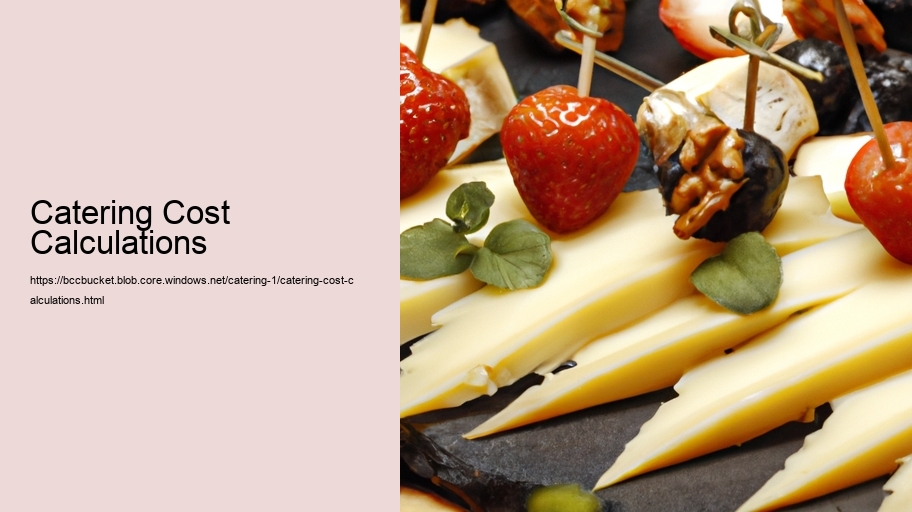Catering Cost Calculations: Balancing Budgets and Banquets
Navigating the delicate balance between hosting a memorable event and maintaining a budget can be akin to performing a high-wire act, and nowhere is this more evident than in the realm of catering. Whether it's a grand wedding reception, a corporate event, or a small social gathering, the success of the event often hinges on the quality and quantity of food and drink served. This essay delves into the intricate process of catering cost calculations, a critical task that ensures both the satisfaction of guests and the financial viability of the event.
At the heart of catering cost calculations lies the understanding of the event's specific needs. This entails a thorough assessment of several key factors, including the number of guests, the type of event, the level of service required, the menu complexity, and the location. Each of these elements plays a pivotal role in shaping the overall cost.
The first step in the calculation process is determining the headcount. The number of guests directly influences the amount of food and beverages needed, which in turn affects the cost. Caterers often offer a per-person rate, which makes it easier for event planners to estimate the initial food cost based on the expected attendance. It's crucial to have an accurate count, as both overestimating and underestimating can lead to wastage or shortage, respectively.
Next, the type of event determines the formality and style of the meal. A sit-down dinner with multiple courses will naturally incur a higher cost than a buffet or cocktail reception due to the increased labor and intricacy of service. Furthermore, the menu selection itself can significantly impact the budget. High-end ingredients like seafood or prime cuts of meat are more expensive than vegetarian or poultry options. Seasonality and local availability of ingredients also play a role in the cost structure.
Another critical component is the level of service required. A full-service catering package that includes set-up, service, and clean-up personnel will cost more than a drop-off service where the food is simply delivered to the venue. Additionally, the need for rental equipment such as tables, chairs, linens, and dinnerware introduces further expenses that must be factored into the overall budget.
Location can also influence catering costs. Hosting an event in a metropolitan area or at a high-demand venue may increase the price due to higher operational costs for the caterer. Furthermore, if the event location is far from the caterer's base of operations, transportation fees and potential accommodation for staff could add to the final bill.
Moreover, the cost of beverages, whether alcoholic or non-alcoholic, can be a significant part of the catering budget. Open bars, where guests can freely order drinks, are typically more expensive than limited-service bars or cash bars, where guests pay for their own drinks. The selection of beverages, from premium spirits to artisanal coffees, can also swing the cost pendulum.
In the catering industry, hidden costs or unexpected expenses are not uncommon. It's essential for event planners to scrutinize quotes and contracts to ensure all potential costs are transparent. This includes taxes, service charges, gratuities, and any minimum spend requirements that may apply.
In conclusion, catering cost calculations are a complex blend of art and science. They require a deep understanding of the event's requirements, a keen eye for detail, and the ability to anticipate and manage a multitude of variables. Mastering this process ensures that event planners can provide delightful culinary experiences while keeping the purse strings tightly knotted. Whether the event is an intimate affair or a grand gala, achieving the perfect balance between cost and quality is the recipe for success in the world of event catering.
